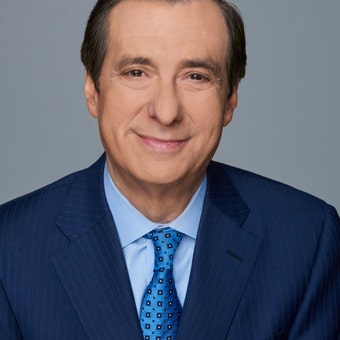Biden erupts at reporter for asking about Putin; 'The Five' react
'The Five' wonder why Biden gave Putin a list of 'off-limit' things to hack
Well, that didn’t last long.
There was an intense media buildup, the biggest of Joe Biden’s brief presidency. Anchors flew to Geneva, networks made special "summit" graphics, the word "showdown" was tossed around.
The media portrayed the meetings with Vladimir Putin as a boxing match from which only one combatant could emerge victorious. Either Uncle Sam or the Kremlin guy was going to win. That completely distorted the nature of what was happening, two wary adversaries from nuclear states acting in their own self-interest.
"I know there was a lot of hype around this meeting," Biden told reporters in a colossal understatement.
After the pundits immersed themselves in body language—Biden sat up straight, Putin slouched and looked uncomfortable—there was a warning sign. The Russian side had said the talks could last for many hours. But the first session lasted 90 minutes and the second, larger meeting perhaps somewhat more than an hour. And that was it. The chatter: What could it mean? What could they possibly have accomplished? Did someone walk out?
We got the Putin version first—at mind-numbing length. The Russian strongman said Biden was very experienced and the talks were "very constructive." Given the Biden decision not to appear together, to avoid being overshadowed as his team believes Donald Trump was at Helsinki, he ceded the stage and the first rough draft of history.
When it was Biden’s turn, he described the tone as positive and businesslike, with disagreements plainly aired.
But there was no concrete takeaway, unless you count exchanging ambassadors again.
FROM GREENE TO SCHUMER TO TOOBIN, APOLOGIES ARE PART OF AN ENDLESS CULTURE WAR
When an AP reporter asked what he accomplished on cyberhacking—for which Putin, predictably, denied any responsibility—Biden said that if the Russians don’t stop "he knows I will take action…The last thing he wants now is a Cold War." The president said Moscow’s international credibility was at stake, but portrayed himself as delivering blunt truths and "there were no threats, just simple assertions." The reality is they just agreed to talk about the issue some more.
The president kept coming back to his central theme, that he raised the questions, that Russia has plenty of problems, that world opinion mattered. But he acknowledged that we won’t know for three to six months whether real progress can be made. There were no, to use a diplomatic term, "deliverables."
Biden was wedded to his message of pragmatic diplomacy as he went through the staff list of reporters (New York Times, PBS, wire services). But when he took a few shouted questions on his way out, he got testy with CNN’s Kaitlan Collins, who simply asked: "Why are you so confident he’ll change his behavior?"
That word set him off as he walked back toward the press pack. "I’m not confident he’ll change his behavior," Biden snapped, as if she hadn’t been listening. "I’m just stating the fact…If you don’t understand that, you're in the wrong business." It was the only time during this trip that he got a little hot.
In fact, before getting on the plane, Biden came back to the pool reporters, apologized for having been "short," saying he "shouldn’t have been such a wise guy." But he said the press always asks negative questions while he has to be optimistic.
Earlier, Putin dismissed questions about the jailing of Alexei Navalny and outlawing of his movement—and kept pivoting to American problems.
He said Navalny broke the law, his group calling for mass disorder, and then gave what you might call the George Floyd defense:
"America just recently had very severe events…after the killing, killing of an African-American, and an entire movement developed known as Black Lives Matter…What we saw was disorder, destruction, violations of the law, etc. We feel sympathy for the United States of America, but we don't want that to happen on our territory and we're doing our utmost in order to not allow it to happen."
Putin wasn’t done, invoking the Capitol riot:
"People came to the U.S. Congress with political demands. Four hundred people, over 400 people had criminal charges placed on them. They face prison sentences of up to 20, maybe even 25 years. They're being called domestic terrorists," but some were arrested on "unclear grounds."
SUBSCRIBE TO HOWIE'S MEDIA BUZZMETER PODCAST, A RIFF OF THE DAY'S HOTTEST STORIES
The people arrested at the Capitol were not just making political demands, they were engaged in a riot. For Putin to decry that, while justifying the poisoning and jailing of a political opponent who engaged in no violence, is just propaganda talk.
From Biden’s viewpoint, what happened in Geneva was another day at the office, standard-issue diplomacy in hopes of an eventual payoff. But in the win-lose world of the media, which thrives on confrontation, the whole thing was kind of a bust.


